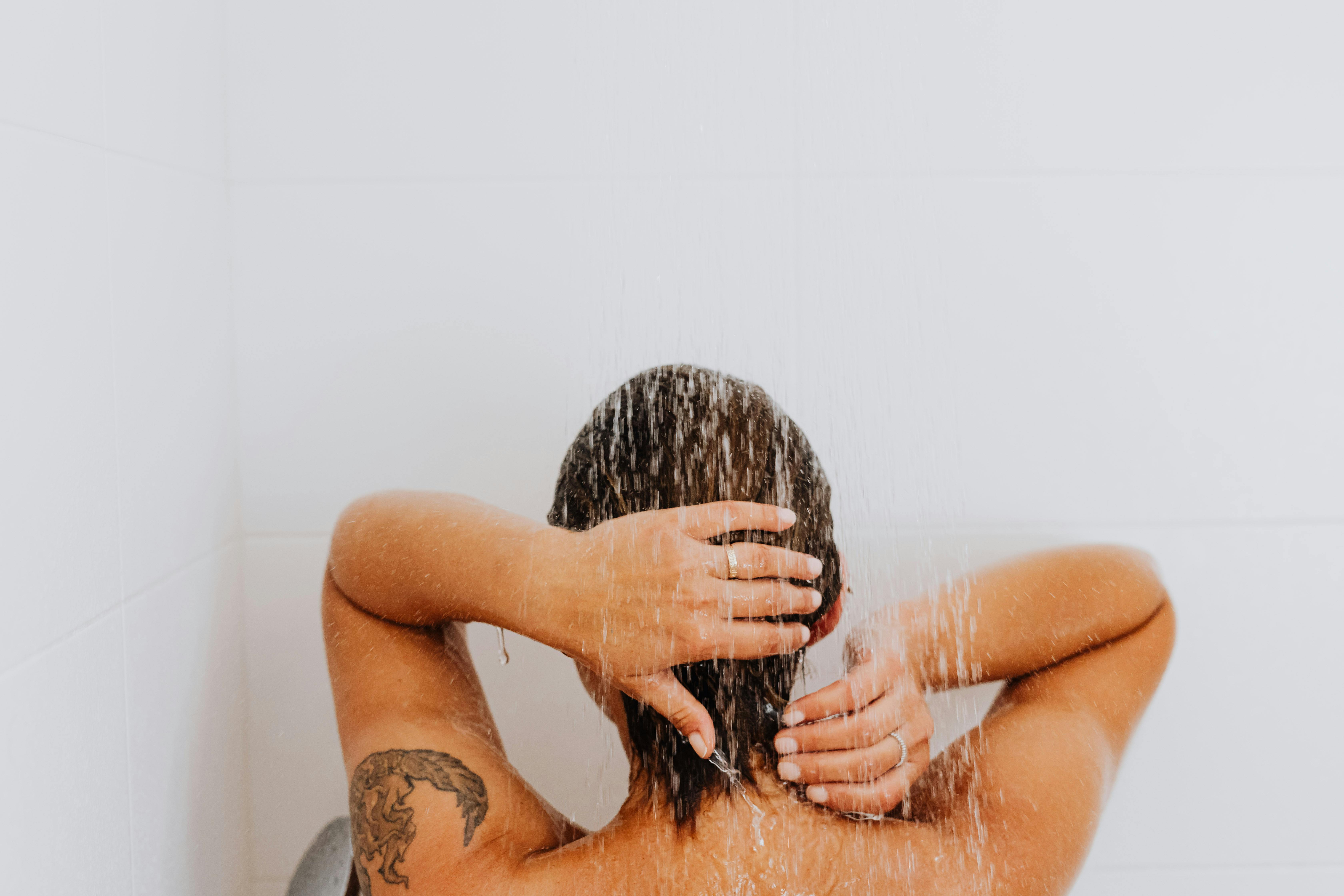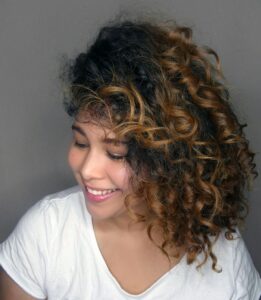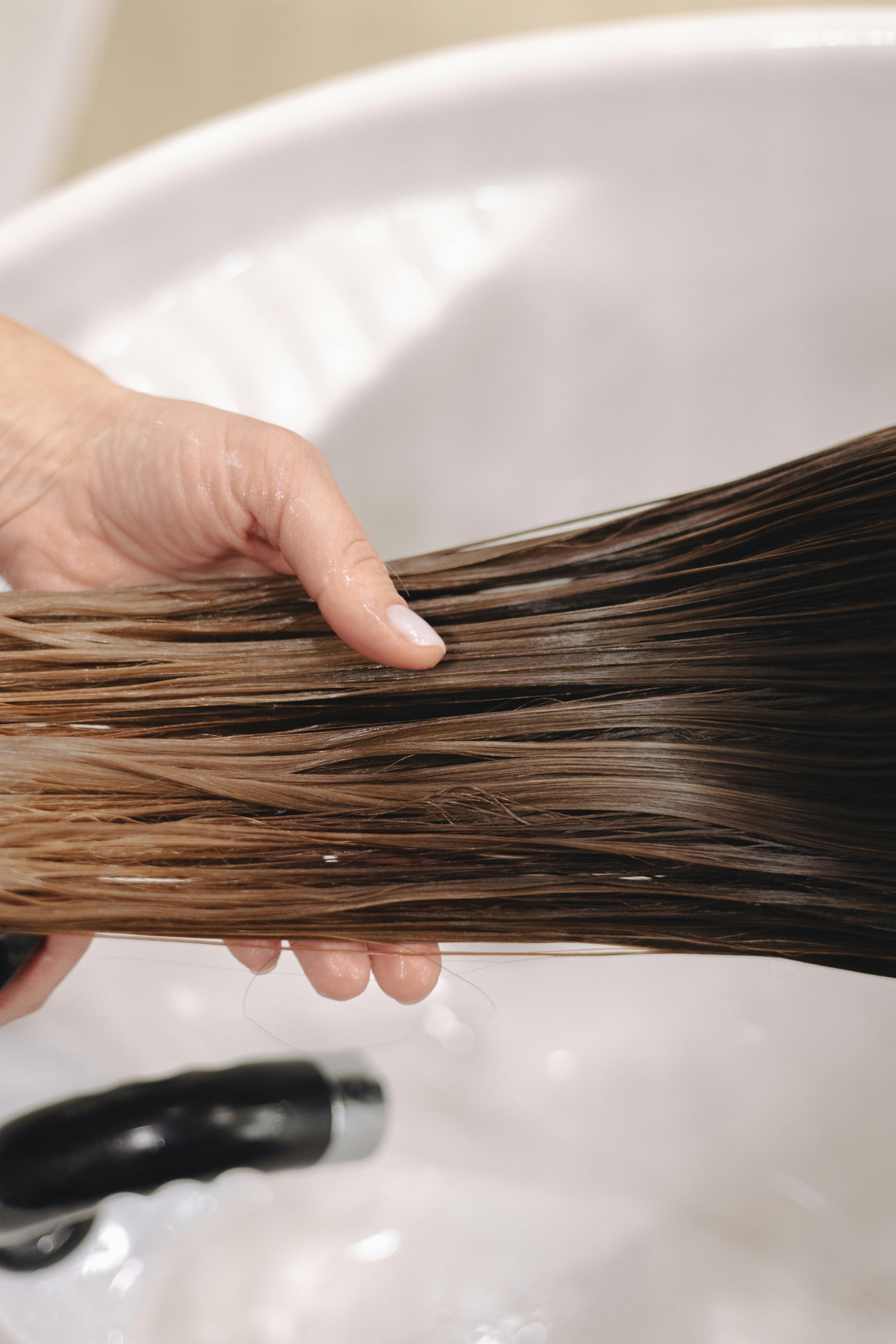How Often Should You Wash Your Hair?

The frequency with which you should wash your hair depends on various factors, including your hair type and daily habits. Generally, experts recommend washing your hair every two to three days, but this can vary.
Finer hair tends to get oily faster, so it may require more frequent washing. If your hair feels greasy, limp, or dull, it’s a good sign that it’s time to shampoo.
On the other hand, thicker or curlier hair, particularly Afro-textured hair, retains moisture better and can often go longer between washes, sometimes needing only one wash per week.
Your lifestyle also plays a big part in determining how often to wash your hair. If you engage in activities that make you sweat, use a lot of styling products, or are frequently exposed to pollution, you might need to wash your hair more regularly.
However, even for oily hair, you don’t always need to increase washing frequency—products like Soapbox Coconut Oil Shampoo, which is silicone-free, can cleanse and nourish your hair without over-stripping essential oils.
Dry or processed hair types benefit from less frequent washes to allow natural oils to condition and protect the hair. Each person’s hair is unique, so finding the right routine is about balancing your hair type with your daily activities.
Recommended: 5 Best Hair Shampoos for Dandruff and Damaged Hair
Is it bad to wash my hair every day?
Washing your hair daily might seem like a good way to keep it clean, but it can actually do more harm than good. Shampoo is designed to cleanse the scalp and remove excess oil, but when used too frequently, it can strip away the natural oils that keep your hair and scalp healthy.
Instead of shampooing the entire length of your hair, focus on the roots and let the ends get cleaned as the shampoo rinses out. This method helps maintain the natural moisture balance, preventing dryness and brittleness.
Over washing can lead to scalp irritation and dryness, especially as you age. People often stick to daily hair-washing routines, unaware that it can cause more harm than benefit.
Adjusting your routine by spacing out washes or using a gentler product can allow your scalp to regulate its natural oils, leading to healthier, more resilient hair. Embracing a balanced approach to washing is key to maintaining long-term hair health.
See Also: Proven Steps to Grow Natural Hair Faster and Healthier
How often should dry or curly hair be washed?

Curly & dry hair typically benefits from less frequent washing, with experts suggesting 1-3 times a week. For those with thicker curls or coarser coils, stretching washes to 10-14 days may be ideal. The reason? Curly hair needs the natural oils (sebum) to lock in moisture and prevent dryness.
However, it’s important to strike a balance, as your scalp still requires regular cleansing to remove product buildup and maintain its health.
Instead of washing too frequently, which can lead to dryness—especially if you’re using sulfate shampoos—consider spacing out your wash days.
Try adopting a refresh routine in between washes. Using a little water and your preferred styling product can help revive curls, keeping them defined and hydrated without the need for a full wash. This approach ensures both your scalp and curls stay in their best condition.
Recommended: Hair Loss: Types, Causes and Prevention
Is it okay to wash your hair with just water?
The water-only (WO) method involves using warm water to cleanse your scalp and hair, relying on natural oils to nourish and protect.
This approach is often the final stage for those transitioning away from traditional shampoos and into co-washing or homemade cleansers.
The idea is to train your scalp to produce the right amount of oil without being over-stimulated by harsh, clarifying shampoos. As you move away from these products, the scalp slowly adjusts, balancing oil production naturally.
For those considering alternatives, co-washing (conditioner-only washing) is a popular option, especially for those with curly hair. Co-washing helps maintain moisture and reduce frizz without stripping hair of its natural oils.
While it doesn’t fully cleanse the scalp, it serves as a gentle method for people transitioning to the water-only method. The benefits of skipping shampoo and conditioner include avoiding exposure to harsh chemicals and experiencing the true texture of your natural hair.
However, this journey requires patience, as it takes time for your scalp to regulate oil production and achieve that ideal balance where your hair feels healthy but not greasy.
See Also: How to Naturally Improve Hair Texture and Volume
How often should color-treated or bleached hair be washed?

To protect color-treated or bleached hair further, it’s essential to avoid over-washing and harsh shampoos that can dull the color. Opt for sulfate-free products designed for color-treated hair, which help preserve the color longer while nourishing the strands. By reducing the frequency of washes and being mindful of product use, you can keep your hair looking vibrant and healthy for longer.
Since washing your hair too frequently can strip both the color and your natural oils, it’s best to limit washes to about three times a week. This helps lock in the color and keeps your hair hydrated.
If possible, you can even extend the time between washes as your hair adjusts. Using dry shampoo in between washes is a great way to refresh your hair and maintain its vibrancy. Apply dry shampoo only to the roots to manage any greasiness while allowing the ends of your hair to retain moisture.
See Also: How to Detangle Natural Hair Like a Pro – Best Products and Techniques for Every Hair Type
How often should i use a shampoo if i have sensitive scalp?
If you have a sensitive scalp, how often you use shampoo plays a significant role in maintaining scalp health. Washing too frequently can strip your scalp of its natural oils, exacerbating dryness and irritation.
It’s best to shampoo every couple of days using a gentle, pH-balanced shampoo specifically formulated for sensitive scalps.
Products like Head & Shoulders Purely Gentle Shampoo are ideal because they are dye-free and mild enough for daily use, while still keeping dandruff in check. This approach allows your scalp to stay hydrated without over-cleansing and prevents further aggravation of sensitivity.
In addition to choosing the right shampoo and frequency, there are other factors to consider. Avoid hot showers, as the high temperature can irritate your scalp, making it more prone to dryness and discomfort.
Instead, use lukewarm or cool water. Minimize the use of styling products that build up and irritate sensitive skin, and avoid excessive brushing or heat styling.
If possible, let your hair air dry occasionally to reduce stress on your scalp from frequent blow-drying. These practices can help soothe and protect your scalp, keeping it balanced and healthy.
See Also: Coconut Oil for Hair – Comprehensive Guide on its Benefits and Best Uses

